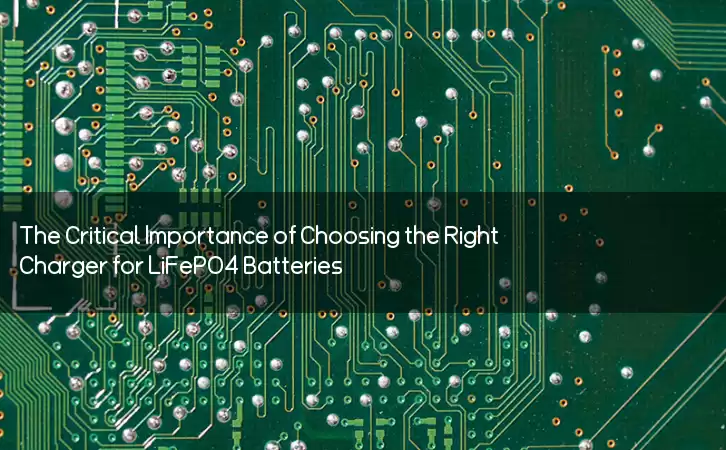Information Center
The Critical Importance of Choosing the Right Charger for LiFePO4 Batteries
Published:2023-07-20 10:32:22 Author:Green WCND Views:26LiFePO4 batteries, also known as lithium iron phosphate batteries, have emerged as a popular alternative to lead-acid batteries due to their higher energy density, longer cycle life, and lighter weight. As the demand for these batteries continues to grow in various applications ranging from automotive to energy storage systems, a common question that arises is whether LiFePO4 batteries require a special charger or not.

The short answer is yes. LiFePO4 batteries require a charger specifically designed for this chemistry. The reason behind this requirement is that LiFePO4 batteries have different charging characteristics compared to other types of rechargeable batteries such as lead-acid or nickel-cadmium. Thus, using a charger that is not designed for LiFePO4 batteries can result in overcharging or undercharging, which can damage the battery and even cause fire hazards.
One of the main differences between LiFePO4 batteries and other batteries is their voltage range. LiFePO4 batteries have a nominal voltage of 3.2 volts, which is lower than the nominal voltage of other lithium-ion batteries. Therefore, a charger designed for conventional lithium-ion batteries cannot be used for LiFePO4 batteries. Moreover, LiFePO4 batteries can sustain overcharging without damage, unlike other lithium-ion batteries. However, this does not mean that charging a LiFePO4 battery with any charger is safe. Overcharging a LiFePO4 battery can still cause damage and shorten its lifespan.
Another important charging characteristic of LiFePO4 batteries is their charging current limit. LiFePO4 batteries have a lower charging current limit than other types of batteries. This means that charging a LiFePO4 battery with a charger that has a higher current output can result in overheating, which can degrade the battery’s performance over time. Therefore, a charger with an appropriate charging current limit is necessary for LiFePO4 batteries.
To summarize, LiFePO4 batteries require a special charger that is designed to meet their unique charging characteristics. Using a charger that is not designed for LiFePO4 batteries can result in damage and even fire hazards. Thus, it is essential to choose the right charger for your LiFePO4 battery to ensure its longevity, safety, and optimal performance.
For golf course managers, ensuring smooth and efficient operations is crucial for providing a memorable experience for golfers and maintaining the reputation of···
A battery tester ensures golf course cart batteries operate efficiently and reduces downtime through the following ways:I. Precise Battery Condition DiagnosisOp···
Battery testers significantly enhance the work efficiency of automotive maintenance technicians through several key ways:I. Rapid Diagnosis of Battery IssuesBat···
Battery testers play a crucial role in automotive battery production lines, significantly enhancing efficiency through highly automated testing processes and mu···





